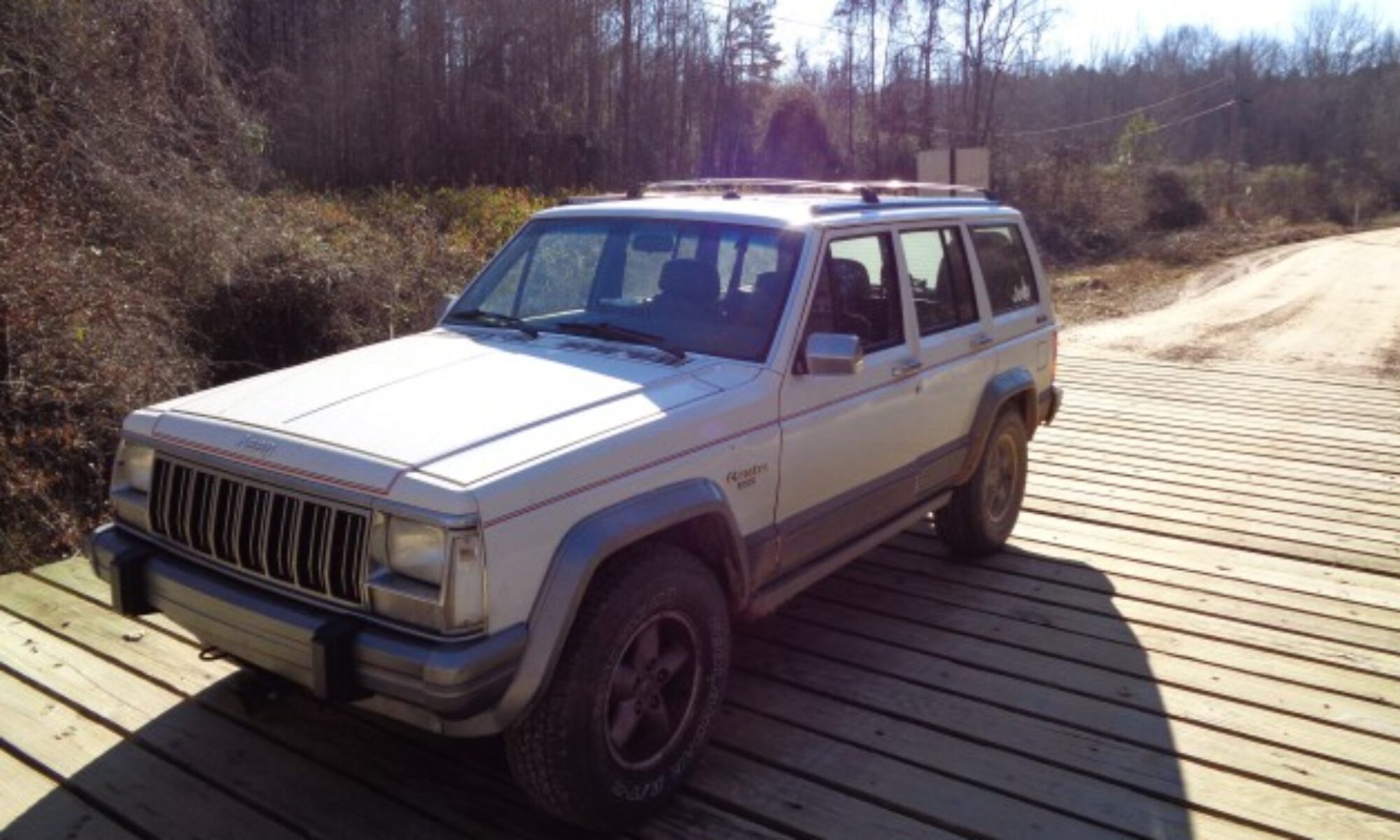Knowing what to pack is always a challenge. Here are seven things I never hit the trail without.
- A good tow strap. One with loops on each end and designed to handle the load of your Jeep and whatever else you will be puling. Carry more than one strap if you can. They can be used to extend a winch line, stabilize a tippy Jeep as well as assist to get over a slippery spot or a rock.

From: Amazon
2. Shackles: You will need to be able to attach your tow strap to something. Good strong shackles are the best way to do it. Never use a tow strap with built-in hooks for anything other than light duty pulling. You can get them at Tractor Supply or from Amazon.

From: Amazon
3. Radio: You will need some way to stay in communication with the others in your group. Did I mention Never off Road Alone! You need to find out what type of Radios your group uses ahead of time. Most of the people I go with use FRS radios. These are cheap and available and do not require a license. They have a very limited range, however. GMRS radios have slightly more power but require a license. CB radios are also used by some groups. These normally require a dedicated setup with a tall antenna. If everyone in the group has a License HAM radio provides excellent communications and most HAM operators will already have dedicated setups or a powerful handheld device. I seldom get the chance to wheel with other HAM operators, however.

From: Amazon
4. Tools: You will need some basic hand tools to make small repairs on the trail. Get to know your vehicle before you go and learn what tools are most often used. Jeeps use a lot of 18mm head bolts that are not common to most toolsets. Also, there are some Torx fasteners in common locations so make sure you have a few of the correct sized Torx bits.
Having a kit with a place for everything will help to not leave tools behind after a trail side repair or adjustment.

From: amazon
5. Ground protection: Inevitably you are going to need to get on the ground to either look under the Jeep or crawl under for a repair on inspection. I prefer not to lay directly on the rocky muddy or dusty ground. A Pit Mat is an ideal solution. You can even use it as a cushion for a nap while waiting for others to repair or recover their rigs.

From: Amazon
6. Rain Gear: No matter what the weather prediction, I always carry a raincoat. A nice PVC setup can really help if you have to crawl into a muddy spot to inspect, repair or extract a vehicle. In the mountains, the weather can change in an instant, and often the predictions for the valley do not match the condition higher up. In Harlan one year we had all four seasons in one day, We started in shorts at camp. Then we had a thunderstorm with hail and then snow higher up. So always pack some extra clothes and rain protection.

From: Amazon
7. Drinks and snacks: Dehydration can come quickly and without warning in higher elevations and sunny mountain areas. Even in the swamp, sweat can quickly remove valuable electrolytes. So pack a cooler full of water or sports drinks for even a brief outing. Just be sure to leave the alcohol back at camp.

From: Amazon


